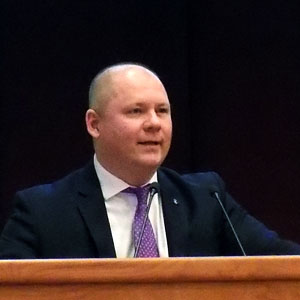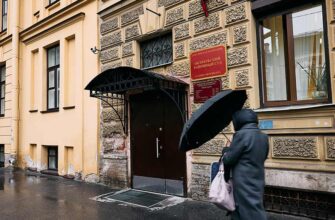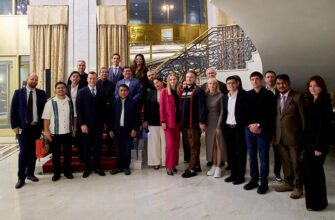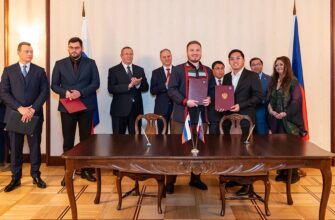At the all-Russian conference “Development of small and medium enterprises: the transition to a new quality” reviewed the projects of state support of small and medium enterprises (SMEs) in 2017 and 2018. The conference was attended by over 350 delegates from the regions of Russia involved in the problems of SMEs.
In June 2016 was approved “Strategy of development of small and medium businesses up to 2030”. The share of SMEs in gross domestic product (GDP) of Russia must increase from 20% to 40%.
Totally in Russia there is over 5.8 million of small and medium-businesses. SME employs 18 million people (25% of the total). 95% of SMEs is the micro business (up to 15 employees, turnover of up to 120 million rubles).
Overall, in 2016 the structure of small business has changed. According to Alexander Kalinin, President of all-Russian public association of SMEs “Opora Rossii”: “the Ministry carried out unprecedented work to build the infrastructure for SME development”. In response to the question of cultural and political magazine “E-Vesti” how actively entrepreneurs use the opportunities, head of “Opora Rossii” said: “the changes which now occur state programs and state institutions produced the result of joint expert work of business and government. We were prescribed the things that must be included in the plan for socio-economic development (more than 100 points), and they were done. That is why we note that in 2016, the measures that were implemented, the state with limited resources, was the most effective in comparison with previous years. We see that in micro business slowly but surely the situation is improving. But if to speak about the receptivity to these problems small business, then it is a global challenge – it is his competence, marketing, organization of work, the ability to understand the flow of information… We need to transform in order to meet these challenges. As for the “Support of Russia”, it completely “reboots” your office on the investment agenda, to work with investors and administrations. This is a great common work, which we will do in the next two years.” Sharov (Vice-President of Sberbank) said: “the Training of predprinimatelei doing business in the new environment, maybe that will help the business even more than the financial investment. According to surveys “Support of Russia” companies that went bankrupt in the first three years, the first reason for the ruin is ignorance. Therefore, investing in financial literacy, we get very good results from companies that will pay off”.
The following innovations have been recently defined in strategic development:
- The SMEs receive a “resource support” (expansion of the access to procurement, loan programs at 6.5%, etc.)
- A maximum amount of income possible to apply simplified taxation has been increased to 150 million rubles.
- The effect of a single tax on income (UTII) has been extended until 2021
- In case of a first violation, a warning letter is sent to the SMEs. No fine is imposed, as previously
- SMEs will receive the exemptions on the antitrust prohibitions and checklists
- A creation of an SME package is underway, which will be implemented at a regional level
- Starting from January 1, 2017, the small and medium businesses will be spare the inconvenience of cadastral procedures.
A deputy minister of economy O. S. Fomichev said that, in 2017-2018, despite the reduction in funding, the support the SMEs will continue in terms of increasing its efficiency and improving the structure.
With this aims the Ministry of economic development has developed a project approach and has prepared a priority project “Small business and support of individual business initiative”. In 2017 it is planned to create a medium-term work plan of the government, where the support of SMEs will be a separate provision. A “transition to a new quality” and a “target model” will be implemented with a wide involvement of the regions under co-financing. A broad discussion of the measures will pass in the first quarter of 2017.
- S. Fomichev claims that the traditionally strong industrial and consumer sectors (food, light, etc.), are the priority areas of the SME development, because they have a demand. The leader of ” Opora Rossii ” sees a great growth potential primarily in the food industry and its exports to China, which “may be our second oil”.
- Kalinin drew attention to the fact that in 2017, it will be necessary to maintain a created infrastructure and to draw the investors’ attention to regional projects, inform them of the best projects and practices and to continue working with enterprises that create infrastructure for the SMEs: Sberbank, VTB, etc.
The big companies are involved in governmental projects of the SMEs support. For example, according to A. Sharov, each second active SME-client works with Sberbank, and the Bank’s loan portfolio on the SMEs totals 994.8 billion rubles on December 8, 2016. Perhaps the main thesis of his report was “a digital customer experience – in the digital age”. The Bank creates a new model for business, including a Smart terminal, electronic records instead of paper trade, remote technical support and sales, as well as monitoring and support of the foreign economic activities. “In 5 years, the visits to the bank will confine to a discussion of investment loans”, – he said. In response on a question how the high tech solutions would increase the costs of SMEs, Sharov said: “Taking into account how many papers “Sberbank” issues on a loan, it saves 70% of the costs. This means a 1.5-2% rate cut for the customer “.
By June 15, 2017, a status of self-employed citizen will be determined. Under the proposal of the Ministry of economic development, the employment act should have amendments, which provide a set of measures involving the self-employed entrepreneurs.
These efforts will also provide a basis for subsequent changes, including an introduction of a new tax system in Russia from 2019: in 2018, the preferential tax rates will be over and the taxes will change.





